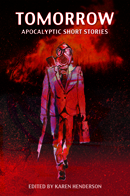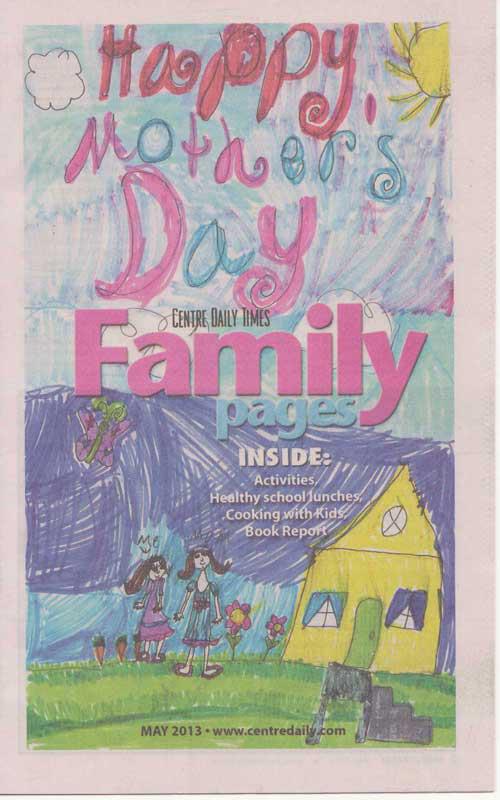It’s Not Personal, But…
This brilliant guest post written by Karen Henderson, whom I’ve known online since the day before Al Gore invented blogging. I think this is some really good advice for all of us writers. How do we deal with feedback about our writing? Read on to the end to discover how you can win a copy of her book. Free books!
It’s Not Personal, But…
This is a true story. A dear friend, a typesetter by trade, told me he regularly sets manuscripts for a gentleman who has been handwriting short stories for years. The writer has never been published and no one else, until recently, has ever read his work.
One day, the typesetter said to the writer that there was an error in the plot of the story he was setting at the time. The minor issue could easily be corrected and the typesetter even suggested the solution. The writer instantly became angry and defensive. He ranted and raved about it being his story, his style, his way. The error was not corrected. The typesetter never gave feedback again.
Last year, the story was passed to family members to read. Several pointed out the error, advising the writer that the story made no sense. All regretted mentioning it when the writer quickly belittled them and ignored their feedback.
Earlier this year, the gentleman handed out several other short stories to close family members. They gathered in secret, with lifted eyebrows and repressed laughter, and whispered behind his back. The plot errors were numerous, the characters bland and the reasons for the story unclear. Some described them as boring and having no purpose. However, everyone knew the writer was not approachable, did not respond well to constructive feedback and none of them wanted to go down that abusive path. So they said nothing.
Unfortunately, because the writer closed himself off as soon as he realised his family didn’t fall in love with his stories, he wasn’t open to feedback of any kind; constructive or not. He heard criticism and judgement towards him as a person. This made him angry and upset. He felt rejected and unsupported. What he didn’t realise is that they were trying to help him. They wanted him to succeed. Why wouldn’t they? They love him. But his attitude pushed them away, made them give him a wide berth and quickly find something pressing to do every time writing was mentioned.
As writers we have to push fear aside and let people read our work and form opinions. It’s never easy to do. And the opinions are not always easy to hear or read either, especially if the reader doesn’t like the story and verbalises why. When this happens it can hurt and it can hurt deeply. It’s only natural to try and defend yourself and your work. You may be tempted to try and explain your reasons for not writing the story the way the reader felt it should be written. However, justifying yourself often makes matters worse.
The important factor to remember is that the reader is not making a judgement against you. It’s not personal. It’s an opinion and we are all entitled to them. The reader may have written the story differently, but it’s not their story, it’s yours, and you are permitted to write it any way you want. Yet a story must have a believable plot, rounded characters, it must make sense, and it must be worth reading. And sometimes the reader can provide important information that will help improve these elements.
Constructive feedback is a great way to learn and grow as a person, and as a writer.
If I receive a “that’s good” for a story I’ve written, I want to know what’s wrong with it. Because “good” isn’t the same as “great” which isn’t the same as “outstanding”. I want to make the story better than good so I have to encourage the reader to tell me what is on their mind. I then have to be brave enough to listen to what they have to say and to hear the meaning behind it. And, as a writer, I need to be able to decipher the suggestions and know which ones are valid and which are not. Because not all suggestions should be taken to heart or implemented. Sometimes, the confusion isn’t a plot hole but the words used. In this case, the words may need to be rewritten and strengthened to clarify the meaning, which in turn fixes the initial plot problem.
Remember, also, that one person’s opinion is not always an indication that changes are needed. For example, if the person hates swearing and your story has a lot of swearing in it, they may tell you it’s inappropriate and offensive. But if six other people read the same story and no one else mentions it then it may be reasonable to believe that the swearing is appropriate to the story and is acceptable.
Personally, I hate long descriptions detailing the shape of every cloud, the way the breeze plays with each leaf on a tree and the silhouettes cast by the sun on the ground; honestly, I find this stuff extremely boring. Yet other readers savour descriptions claiming some authors can paint a picture with their words. What should the author do? It’s simple. Whatever they feel is right for them and their story. Someone will always find fault, but there will be others who appreciate their style.
Without feedback a mediocre story will never become outstanding; something everyone wants to read. So, as they say, grow a thick skin and stop letting feedback hurt you. Instead, smile and thank the person for their time. Then go and consider what has been said, decide if the feedback is valid and if it is, improve your manuscript.
How do you handle feedback?
****
This guest post is part of the Tomorrow Virtual Book Tour starting on 6 July 2013. To find out more about the stories, the authors and the publication go to the virtual book tour schedule page at http://www.kayellepress.com/2013/06/tomorrow-virtual-book-tour-schedule/.
I am offering Paul’s readers a chance to win a copy to the Tomorrow ebook (in the format of the winner’s choice). Just leave a comment on this post and your name will be in the draw. One name will be randomly drawn and the winner will be announced in the comments section, in a couple of days.
Before I go, I’d just like to say a big thank you to Paul for hosting this stop on the book tour. There are some mighty interesting posts on this site, so please take a few minutes to take a look around.
About Karen Henderson
Karen Henderson is an editor at Kayelle Press, a small independent publisher of speculative fiction in Australia. Their latest release is Tomorrow, a post-apocalyptic anthology exploring the possible outcomes of plagues, biohazards, human error, natural disasters and intergalactic travel. The book is available in paperback and various digital formats from their website and from most online bookstores. Visit the website (www.kayellepress.com) to find out more.

